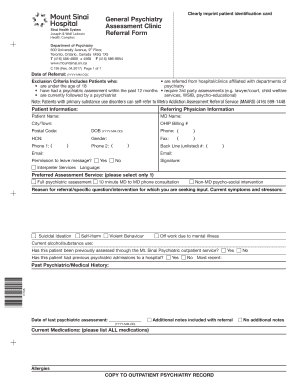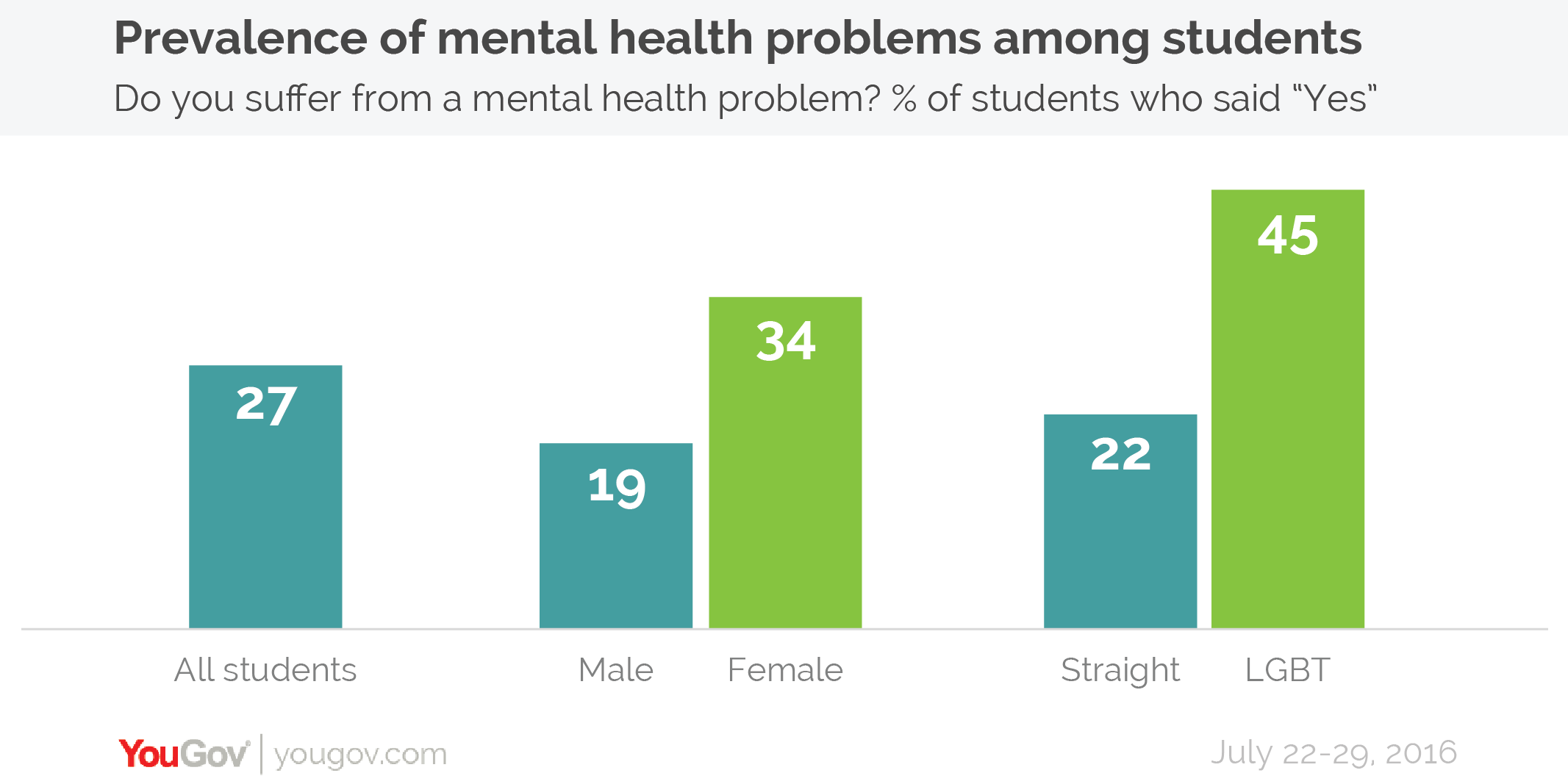Exclusionary discipline rates are substantially higher for students of color and trainees in unique education classrooms. 78% of children with anxiety have received treatment, whereas treatment for anxiety and behavioral/conduct problems was 59% and 54%, respectively. Without access to services, trainees with stress and anxiety are at greater threat of later establishing depression.
Kids from low income, Hispanic and African American households are less likely to be identified and dealt with based upon limited access to care. Biases associated with medical diagnosis of behavioral conduct issues are most prevalent with African American trainees. Closing the treatment space in schools starts with more funding so that districts can bring more therapists and psychologists onboard - essential forces for school security before and after distressing occasions.

At Amanda Greene-Chacon's school in Oregon, many trainees never ever have the opportunity to meet these trained experts. "There is Click to find out more a mental health crisis in our schools," she told The Register-Guard. "The primary and intermediate schools do not have adequate numbers of mental health experts. At the high school level, we are seeing unmatched levels of troublesome, disrespectful and even threatening habits." Greene-Chacon, a member of the Springfield Education Association, likewise thinks the "the genuine issue is the way we serve our students in overcrowded class where the pressures of standardized screening have robbed teachers of their ability to provide age-appropriate instructional chances." Liz Hurt, a school nurse in Oakland, California, states the addition of nurses in schools results in quantifiably more time for instructors to educate their students in the classroom rather than concentrate on other needs.
Mental health specialists highly think beginning early produce much better outcomes in later years, however the absence of programs and services readily available to preschool kids is glaring. https://ellachr5hz.wixsite.com/johnathanqehc757/post/what-does-affect-mean-in-mental-health-the-facts "For both anxiety issues and behavioral/conduct problems, treatment receipt was more typical among school-aged kids compared to those aged three- to five-years," the report stated.
Something real for practically everybody reading this is that our everyday lives as kids were specified by going to school. We discovered new things, good manners, and how to deal with other individuals, and we made new buddies. Enjoyable, right? Nevertheless, nowadays, high school has taken on a whole brand-new significance for teenage trainees.
Almost all of us probably knew a minimum of one kid in school who deserved a great lesson in good manners. Well, the American Society for the Favorable Care of Children has found that 28 percent of all kids aged 12 to 18 have suffered from bullying. Bullying is a terrific nuisance for trainees, for it turns the school from a healthy learning environment to a frightening no-man's- land.
If a victim is physically bullied, he may fear for his instant safety. Plus, signaling a teacher or grownup can be frightening, particularly if the bully threatens to be much more terrible if an adult is involved. A young trainee can easily be frightened by the class bully. And if the bully turns the school into a place related to being beaten or getting their cash or food taken, why would a child wish to go, let alone go there to learn and work? If you walk through a high school's hall, you'll probably see a lot of drowsy trainees with endless bags under their eyes.
Substance Abuse Treatment style="clear:both" id="content-section-1">The Best Strategy To Use For How Does Being Homeless Affect Mental Health
When asked how they felt in school, 39 percent of the students simply answered that they were tired - what does mental health affect. Undoubtedly, following classes all the time is hard enough without needing to get up at 6:00 AM to capture a 6:30 bus. Contribute to that after-school activities, stress, homework, and deadlines, and you can wind up tired pretty rapidly.
A healthy amount of sleep for a teen in high school is in fact 9.5 hours, however typically, they only get 7 - how does stress affect mental health.5. Not getting adequate sleep can make a teen irritable, tired, and depressed, which leads to a failure in grades. Agoraphobia can be a major cause of panic attacks, and if we have a look at schools, they are loaded with seemingly limitless masses of trainees scurrying from one class to another.
Anxiety attack can be extremely frightening, and clearly, a trainee who routinely experiences them can not study effectively. Students suffering from panic condition are often distracted in class or carried away by their ideas, which is why they can easily be overwhelmed if overwhelmed with info. Panic attacks can likewise be stimulated by the fear of an upcoming occasion or overthinking something, such as a test, the repercussions of a bad grade, and so on.
It's no marvel that more than 6 percent of teens are taking prescription psychiatric drugs. These can be for anything from anxiety to ADHD, which can trigger a trainee to easily get distracted and lose track of what is taking place in class, making it terribly simple to fall back on their notes, making it more difficult to prepare for tests or projects, even more digging a hole in their grades.

This leads to them having a lower view of their intelligence compared to other trainees when, in truth, it is not connected to their mental capability. Typically, the issue is not related to their intelligence but rather to a lack of inspiration to maintain and pay more careful attention.
Grades are scary, and school is harder than ever. How better to test students than to put them through a series of demanding tests that may or may not define their future? Well, let's have a look at how many students aged 13 to 18 report having test stress and anxiety: 25 percent.
It just worsens after that because of the significance American high schools offer to grades and results. If a trainee fails their last tests, it can have effects for their college and ultimately their career. When such a focus is placed on a test, so easy to fail if we get the responses wrong, it's only regular to be worried out.
How Does Exercising Affect Mental Health - An Overview
Simply due to the fact that one trainee has much better memory than another, it does not define his intelligence. Trainees can be exposed to a lot of uneasy circumstances in high school, such as deadlines, social relationships, fear of failure, and so on. The frustrating amount of things students need to think of, remember, and hand in is just frightening.
Stress makes it really difficult to work, handle school, and have healthy social relationships, which we often forget is crucial to a child's advancement. In numerous methods, the challenges that face students in high school just make matters worse, with social relations at school being more and more hard and numerous subjects needing oral discussions.
And, let's be sincere, even for those who do not currently experience anxiety, speaking in front of a crowd is not constantly easy (what can affect mental health). Being a teen is hard enough without having to deal with difficult times at school; it can lead to a student sensation sadder and sadder for weeks or even months.
They remove themselves increasingly more from school, the instructors, whatever, impairing their mental health and, of course, their grades. The fatigue often felt by teenagers at school only makes matters worse. As many as one teen out of five experiences anxiety before getting in adulthood. In severe cases, anxiety might result in self-harm or even suicide.